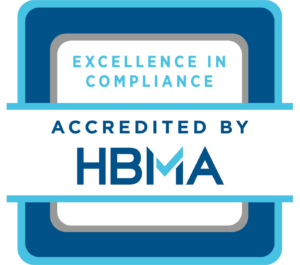Deciding whether to manage the revenue cycle internally or outsource it to a revenue cycle management (RCM) company depends on several factors specific to your healthcare organization. Here’s a breakdown to help you evaluate:
Benefits of Managing Revenue Cycle In-House
- Control & Transparency
- You have direct oversight and control over billing, claims, and collections processes.
- Greater transparency in how operations are run, and data is handled.
- Customization
- Processes can be tailored to meet the unique needs of your organization.
- Easier to align the revenue cycle with internal goals and patient care strategies.
- Potential Cost Savings
- Avoid paying service fees to third-party RCM companies.
- Can be cost-effective for organizations with established infrastructure and trained staff.
- Data Security & Compliance
- Greater assurance of data privacy, provided you have robust security systems.
- You control compliance measures directly, reducing risks from external vendors.
Optimize & Automate Your In-House Revenue Cycle
Effective Intelligence Workflow Automation
Including cloud-based financial clearance & medical billing automation technology plus central task management, and generative AI reporting & feedback.
Benefits of Outsourcing to an RCM Company
- Expertise & Efficiency
- RCM companies specialize in billing, coding, and compliance, which can reduce errors and improve collections.
- They are often up to date with the latest regulations and technologies.
- Potential Cost Savings
- Reduced need to hire and train staff or invest in technology upgrades.
- Predictable costs through service contracts, avoiding variable overhead expenses.
- Scalability
- Easily adjust to changes in patient volume without overloading internal resources.
- Flexible services can grow with your organization.
- Focus on Core Competencies
- Free up internal resources to focus on patient care and strategic growth.
- Alleviate administrative burdens from staff.
Outsource some or all of your revenue cycle
RCM Operational Support Services & Patient Digital Payment Center
Including RCM assessments & coaching, staff augmentation, workflow automation technology, advanced analytics, and patient digital payment technology
Key Considerations
- Cost Analysis
- Compare the total cost of in-house management (salaries, training, technology) with outsourcing fees.
- Factor in potential lost revenue from in-house errors versus efficiencies gained by outsourcing.
- Size & Complexity
- Smaller organizations may benefit more from outsourcing due to limited resources.
- Larger organizations with complex systems may find in-house management more feasible.
- Technology Needs
- Do you have the infrastructure to support advanced billing systems and compliance tools?
- RCM companies often have cutting-edge technology already in place.
- Compliance & Risk Management
- Evaluate whether your team has the expertise to stay compliant with changing healthcare regulations.
- Outsourcing transfers some compliance risks to the vendor.
- Patient Experience
- Consider how outsourcing might impact the patient billing experience and satisfaction.
- Some RCM companies specialize in patient-friendly billing, which may be an advantage.
Hybrid Approach
Some organizations choose a hybrid model, keeping critical functions like coding or patient interaction in-house while outsourcing time-consuming processes like claims submission or denial management. This can provide a balance between control and efficiency.
Recommendation
Conduct a thorough cost-benefit analysis, consider your organization’s capabilities, and prioritize areas where expertise or efficiency gaps exist. If you’re unsure, start with outsourcing specific functions and evaluate performance before making a full transition.










